Systematics
Here is information on UNE's offerings in Systematics. Systematics, including taxonomy, is the oldest discipline within biological science, and concerns the biodiversity studies at all levels and is particularly focused on the scientific pursuit of discovering species in nature and reconstructing their evolutionary relationships.
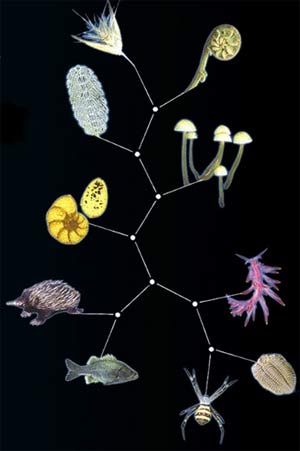
Systematics is broadly synthetic, drawing on all intrinsic aspects of organisms from molecules to morphology and integrates knowledge of ecology and provides a means to explore historical biogeography. In turn, Systematics informs all other disciplines of biological and earth science and underpins agriculture, ecology, ethnobotany and natural resources management. A knowledge of species and phylogeny is critical in the search for new pharmacologies and in the assessment and conservation of rare and threatened species.

Why study Systematics at UNE?
UNE has a strong reputation with employers for training practical and high quality organismal biologists. We have an exceptional range of relevant units and a strong collaboration with the Botanic Gardens Trust Sydney (BGT; formerly the Royal Botanic Gardens Sydney; Australia's oldest scientific institution) and the Australian Museum (AM; Australia's foremost museum of animal science).
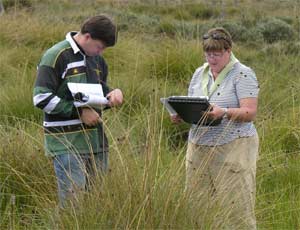
We can give you the opportunity to taste research even as an undergraduate student. We combine quality and flexibility - SCI395 Science Project and WORK300 Work Experience units can be undertaken at or co-supervised by staff of AM, BGT, UNE and possibly in conjunction with other herbaria or museums.
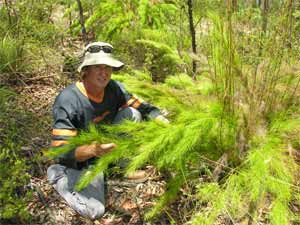
Bachelor of Science with Honours Graduate Certificate in Environmental Science Doctor of Philosophy Students specialising in Systematics should undertake the following Biodiversity/Systematics units: BOTY203 - Plant Diversity ERS501 - Applied Research Skills in Environmental and Rural Science Depending on the area of Systematics you wish to focus in and therefore the major/degree you choose, we would recommend also a range/combination of units in BCHM (Biochemistry and Molecular Biology), Botany (BOTY), ECOL (Ecology), Ecosystem Management (EM), GENE (Genetics), Geology and Palaeontology (GEOL), and Zoology (ZOOL), which focus on the biodiversity, and behavioural and physiological ecology. This is an exciting time to be a Systematist, with advances in methods and taxonomic tools leading to greater understanding of phylogeny and a time of unprecedented international collaboration. At the same time there remains some 20-30% of species of the vascular flora yet to be 'discovered' and a much Systematics graduates find employment as teachers, researchers and in local, state and federal government agencies as well as with non-government organisations and increasingly as consultants with environmental companies. We have links with most herbaria, botanic gardens and many animal museums around Australia and many herbaria world-wide. We have first rate undergraduate teaching laboratories with great microscopes and stereoscopes, monitors and demonstration equipment. We have the world-class N.C.W. Beadle Herbarium and the extremely useful Zoology Museum at UNE. Many of our units have practical fieldwork that takes you into the diverse range of ecosystems in the region. You will be taught in the field, lab and lecture theatres by highly qualified, enthusiastic and dedicated teachers and treated as individuals not numbers.Undergraduate
Bachelor of Science
Bachelor of Science/Bachelor of Laws
Bachelor of Environmental Science
Bachelor of Environmental Science/Bachelor of Laws
Bachelor of Zoology
Diploma in The SciencesBachelor Honours
Postgraduate Coursework
Graduate Certificate in Science
Graduate Diploma in Science
Master of Environmental Science and Management
Master of Scientific StudiesPostgraduate Research
Master of Environmental Science (Research)
Master of Science
EVOL211 - Evolution and Biogeography
EVOL301 - Biological Systematics
SCI500 - Research Methods in the Sciences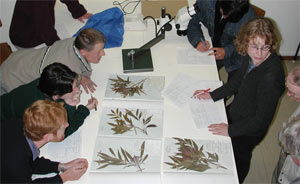
higher proportion of fungi and invertebrates.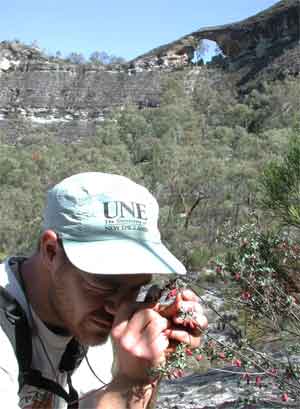

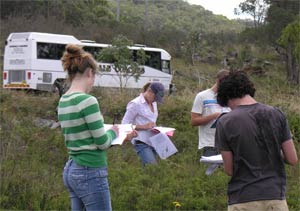
Contacts
For general and administrative enquiries, AskUNE.
For information and advice about studying Systematics at UNE:
Jeremy Bruhl
Phone: +61 2 6773 2529
Email: jbruhl@une.edu.au


